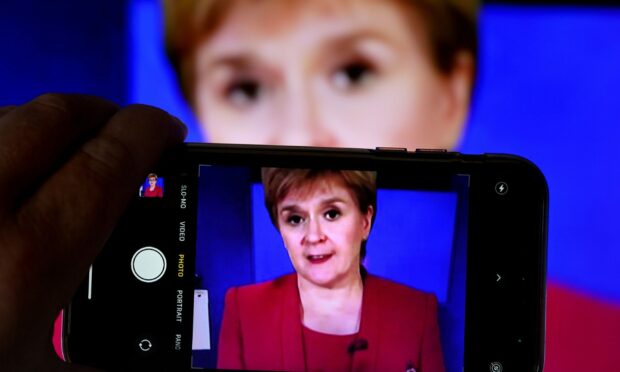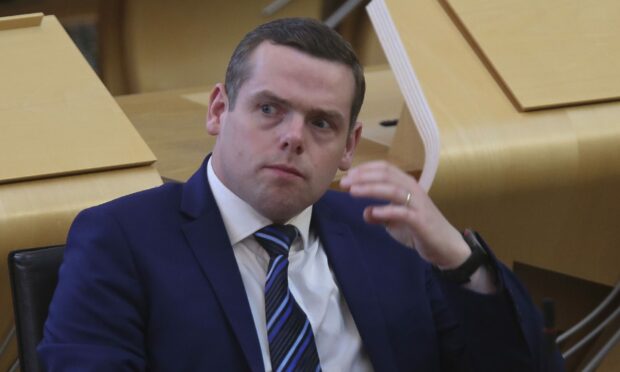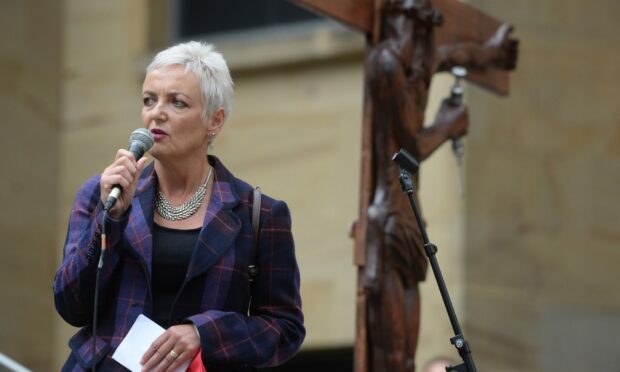Even her harshest critic would struggle to accuse Nicola Sturgeon of shirking her leadership responsibilities while reacting to the coronavirus pandemic.
For some 17 months now, the first minister has been unwavering in her commitment to being the public face of the Scottish Government’s response, even when it has been found wanting.
Many will have disliked what she has had to say during the crisis, but they could not accuse her of shying away from saying it.
“The responsibility weighs heavily on my shoulders to keep people safe,” Ms Sturgeon said at one point on Tuesday, as she spoke confidently to recalled MSPs for more than two hours on almost every conceivable aspect of the ongoing crisis.
Ms Sturgeon was speaking, of course, about the Covid-19 pandemic.
However, she could, and perhaps should, have been referring to the record number of substance abuse deaths recorded in Scotland.
The SNP leader has been under pressure since it was confirmed on Friday that a total of 1,339 fatalities last year were attributed to drugs in 2020, an increase of 5.9% on 2019.
The death rate is some three-and-a-half times that of the UK as a whole, and also higher than any other European country.
On Sunday, Scottish Labour leader Anas Sarwar urged Ms Sturgeon to make her response to the problem her “political priority”, telling her that if she “fails to make progress, she should make way for someone who will”.
Scottish Conservative leader Douglas Ross issued a similar challenge at the first minister’s coronavirus update on Tuesday, asking if she would “finally step up” and “lead her government’s response” on drug deaths.
The SNP leader said Angela Constance, the minister for drugs policy, would make the urgent statement demanded by opposition parties, because “Angela was appointed by me, as all ministers are, and she reports directly to me”.
Tory MSP Stephen Kerr highlighted an inconsistency in the “logic” of Ms Sturgeon’s reasoning, pointing out that John Swinney, the Cabinet secretary for Covid recovery and deputy first minister, could have been making the coronavirus statement.
With this logic, why not leave the COVID statement to her COVID recovery minister, who assumedly still answers to her?
Nicola Sturgeon wants to distance herself from the drugs deaths crisis, it doesn't seem like she's taking it seriously. https://t.co/qVkLgH2CXb
— Stephen Kerr MSP (@RealStephenKerr) August 3, 2021
“Nicola Sturgeon wants to distance herself from the drugs deaths crisis. It doesn’t seem like she’s taking it seriously,” Mr Kerr said on Twitter.
His party leader, Mr Ross, hammered home the point when Ms Constance was able to make her statement, asking: “Where is the first minister?”
Ms Constance, who has an unenviable task of trying to respond to a problem that goes far beyond the current “drugs policy” of the Holyrood government, told Mr Ross she would not “play games” and was not “remotely interested in playground politics”.
Her sombre, almost subdued, statement contained an announcement that a new residential rehabilitation facility to support families affected by drug use would be developed in North Ayrshire.
Responding, Mr Sarwar said some age groups were more likely to die of drugs last year than Covid-19, and said: “We need immediate effort of that scale to confront this crisis.”
Ms Constance did not sound entirely convinced when she later assured him: “We do indeed have a plan”.
The government may have a plan, but the public in Scotland has become accustomed, in the last year-and-a-half, to hearing important public health messages directly from the first minister.
Ms Sturgeon may have become a victim of her own success, in this regard.
By appearing to be in such firm command of a national effort to respond to Covid, she has set an expectation that she will struggle to match during the drug death crisis, and other emergencies in post-pandemic politics, let alone her more junior colleagues.
Of course, the first minister’s time is limited and it would not be reasonable to expect her to lead on every aspect of government policy.
But, as she outlined yesterday: “We are now in a different stage of this pandemic.”
Perhaps this next phase, which moves us “beyond level zero”, will soon need to be accompanied by some kind of reassessment of the top priorities of the government and its first minister.
Otherwise, before long, Ms Sturgeon’s critics may be justified in accusing her of shirking her leadership responsibilities, after all.



